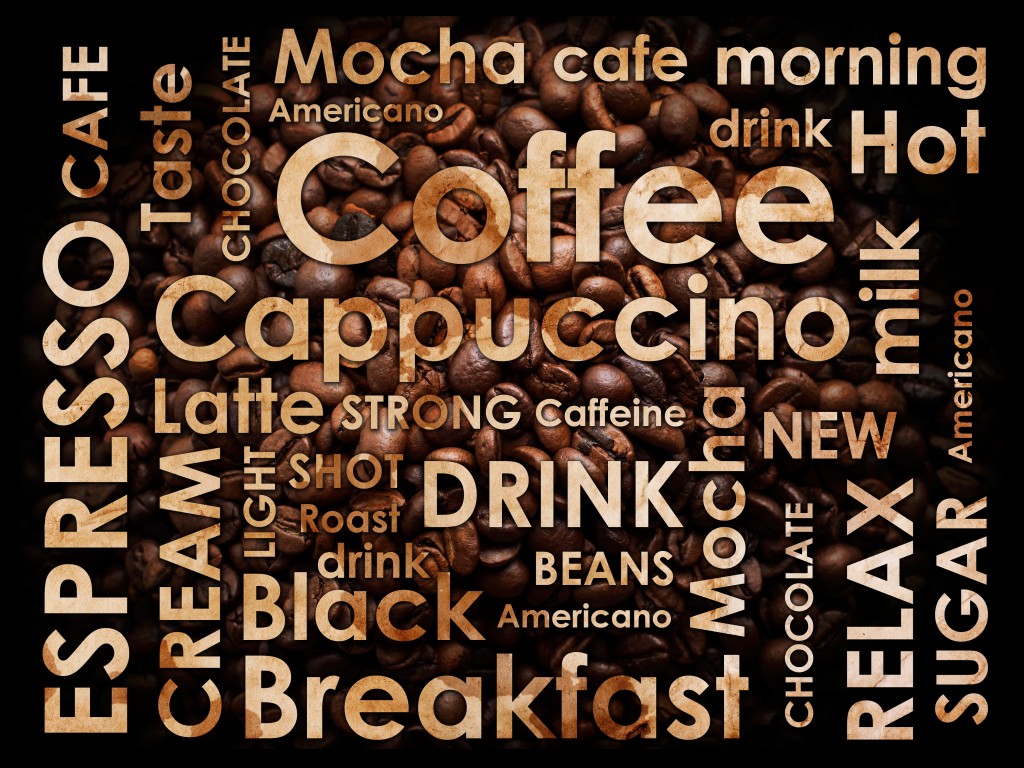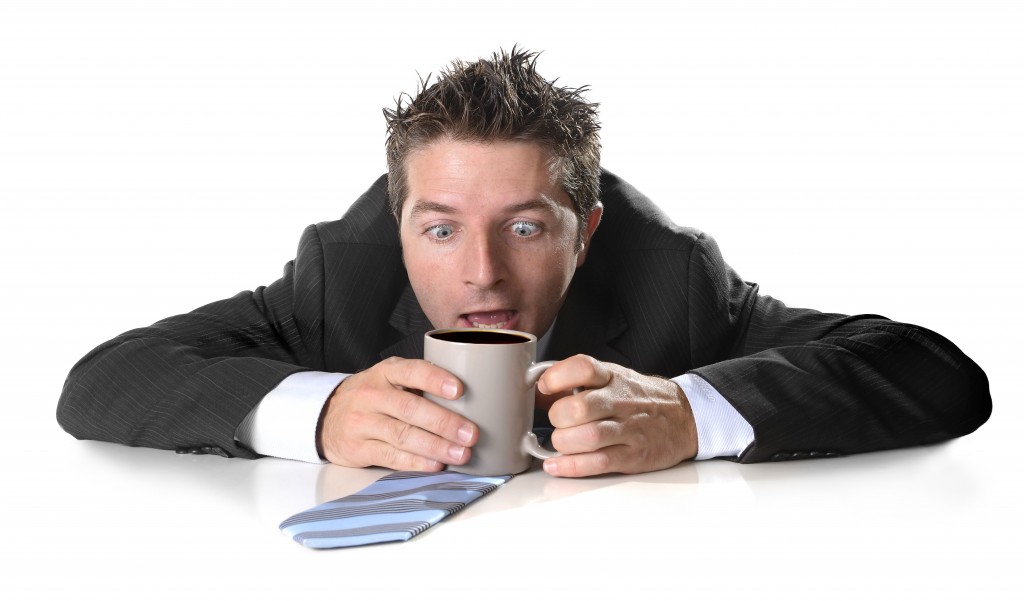If you think about it, caffeine is the most commonly used psychoactive substance. Since we deal with anxiety, tension, irritability, insomnia, nonrefreshing sleep, etc on a daily basis, I think that it is important to know and manage the amount of caffeine our patients are taking. In my opinion, the substance use history should also include the amount of caffeine consumed per day. In particular, in all cases we should ask whether the person uses any so-called “energy” drinks. We should also educate our patients about what products have how much caffeine.
Excessive caffeine intake can make mania or hypomania worse. Unfortunately, these persons often increase their caffeine intake while manic. Also, persons with ADHD tend to take more caffeine than others, probably to self-medicate their inattention and the fatigue that they often suffer from.
We should know about the huge variation in the amount of coffee in different products and I will explain some of that below. Adults get caffeine from coffee, tea, soft drinks, “energy” drinks, etc. In the United States, most of the caffeine consumed comes from coffee. More tea is consumed around the world than coffee, but coffee contains 50 to 70% more caffeine than tea (Harland, 2000). Children and adolescents get their caffeine mainly from soft drinks.
What we don’t know may be harming us
Many adolescents are unaware that their favorite beverages contain caffeine and many are unable to correctly identify which commonly used beverages do or do not contain caffeine (Thakre et al., 2015). Adults are probably relatively ignorant as well. In particular, in my personal experience, some customers of Starbucks coffee and of 5-Hour Energy drinks don’t seem to know or realize what large amounts of caffeine these drinks contain.
How much caffeine is too much?
For most adults, up to 400 mg of caffeine per day is usually not associated with adverse effects (Health Canada). The United States Food and Drug Administration has not published any guidelines for caffeine consumption in children and adolescents. However, Health Canada, the Canadian equivalent recommends the following maximums:
|
Age |
Maximum caffeine intake |
|
4 to 6 years |
45 mg/day |
|
7 to 9 years |
62.5 mg/day |
|
10 to 12 years |
85 mg/day |
| 13 years or older |
2.5 mg/Kg of body weight |
Health Canada also recommends that women who are pregnant, breast feeding, or planning to become pregnant should also limit their caffeine intake to a maximum of 300 mg/day.
Note: For persons with mental health problems (anxiety, insomnia, poor quality sleep, etc), I think the maximum caffeine intake should be MUCH less than that for others. Ideally, zero?
Below, I have compiled the caffeine content of various beverages and other products. When looking at the caffeine content, it is important to also keep in mind the quantity that is consumed. My goal is not to provide a comprehensive list of products and their caffeine intake. Rather, I have listed some of the most commonly used products to illustrate their approximate caffeine content.
Coffee and tea
The caffeine content of most Starbucks beverages is available on their website. The Dunkin’ Donuts website, on the other hand, does not provide caffeine content for its beverages.
| Ounces | Caffeine (mg) | |
| Dunkin’ Donuts brewed | 16 | 302 |
| Starbucks brewed | 12 (Tall) | 260 |
| Starbucks brewed | 16 (Grande) | 330 |
| Starbucks brewed | 20 (Venti) | 410 |
| Starbuck brewed decaf | 12 (Tall) | 20 |
| Starbuck brewed decaf | 16 (Grande) | 25 |
| Starbuck brewed decaf | 20 (Venti) | 30 |
| Tea (average) | 8 | 50 |
So, just one venti cup or two tall cups of Starbucks coffee exceeds the maximum recommended daily intake of caffeine! But every time I pass Starbucks, I see a line of people waiting patiently to order.
Note that tea is much better in terms of caffeine content, though the amount of caffeine depends on how long it is brewed for. Maybe we should encourage our patients to change to drinking tea?
Note that decaf coffee also contains some caffeine. So, “decaf” doesn’t mean that you can drink this all day long (like I used to).
Soft drinks and others
| Ounces | Caffeine (mg) | |
| Coke, Diet Coke, Coke Zero | 12 | 47 |
| Pepsi, Diet Pepsi | 12 | 38 |
| Mountain Dew | 12 | 54 |
| Sunkist orange soda | 12 | 40 |
| Sprite | 12 | 0 |
| 7-Up | 12 | 0 |
| A&W Root Beer | 12 | 0 |
| Chocolate milk | 8 | 8 |
| Chocolate brownie | 1.5 | 10 |
Note that some soft drinks don’t contain any caffeine at all. On the other hand, Mountain Dew is particularly bad in terms of caffeine content. We should tell adults, children, and adolescents these facts, so that can factor this into their decision about which soft drink to consume (if they choose to drink one).
The most popular “energy” drinks (USA)
| Ounces | Caffeine (mg) | |
| Red Bull Energy Drink (original) |
8.4 (also comes in 20 oz cans) |
80 |
| Monster Energy | 16 | 160 |
| Rockstar Energy Drink | 16 | 160 |
| NOS | 16 | 160 |
| Amp | 16 | 142 |
| Full Throttle | 16 | 160 |
| 5-hour Energy | 1.9 | 215 |
| 5-hour Energy Extra Strength | 1.9 | 242 |
The label on 5-Hour Energy drink does not state how much caffeine their is in each bottle. But it states that it contains caffeine “comparable to a cup of the leading premium coffee.” Well, guess what–a cup of the “leading premium coffee” contains a LOT of caffeine. I had a patient recently who became addicted to 5-Hour Energy drinks and would drink about 5 of them a day and then take high dose quetiapine at night to sleep!
How long does the effect of caffeine last?
The half life of caffeine in adults varies from 3 to 7 hours. Its effect lasts for about 3 to 4 hours, but this can vary from person to person
Copyright © 2016, Rajnish Mago, MD. All rights reserved. May not be reproduced in any form without express written permission.
Disclaimer: The information on this website is intended for general educational purposes only. It is NOT intended as a substitute for medical advice. Patients must ask the clinicians treating them, Dr. Mago or others, for advice specific to their situation.

